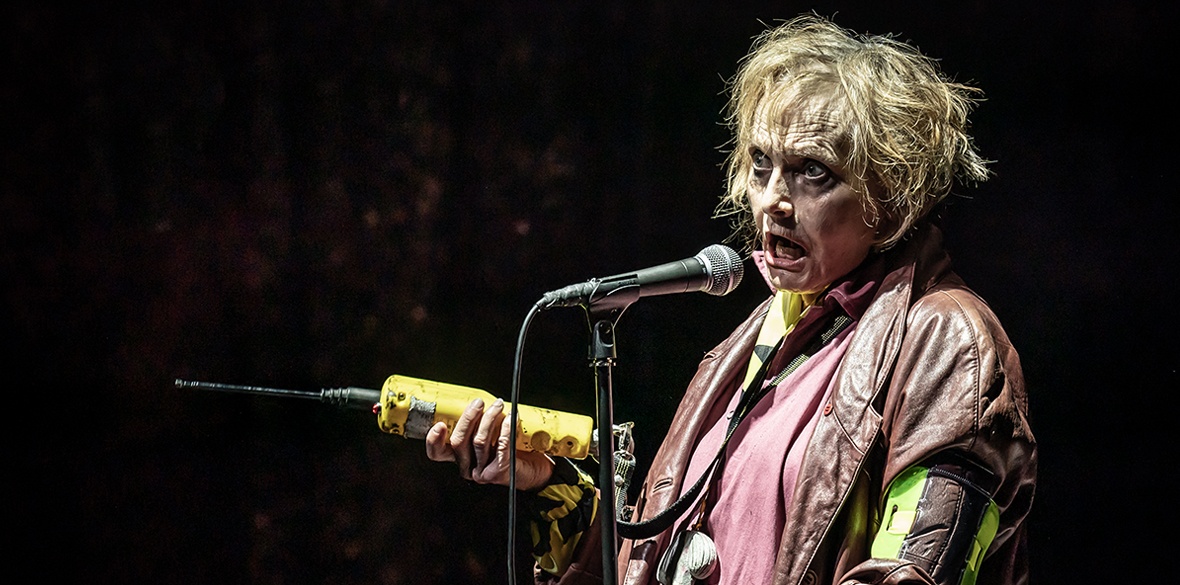This is the last article you can read this month
You can read more article this month
You can read more articles this month
Sorry your limit is up for this month
Reset on:
Please help support the Morning Star by subscribing here
Macbeth
The Royal Shakespeare Theatre, Stratford-upon-Avon
THERE has long been an ongoing question at the RSC as to how to present Shakespeare to modern and, it is hoped, more youthful audiences.
There is a moment in Wils Wilson’s new production of Macbeth clearly indicating how we are encouraged to respond to this version of Shakespeare’s most profound treatment of the corrupting futility of ruthless ambition.
Reubin Joseph’s Macbeth stops short in the iconic “Tomorrow and tomorrow and tomorrow” speech as if struck by a good idea, strides over to the wings and collects a stand up microphone before continuing to deliver the rest as if from a public platform. Earlier he has encouraged the audience to help build tension by joining him in rhythmic clapping as if in a pantomime.
And the infamous porter’s scene that comes after the Macbeths’ murder of Duncan in the original is heavily loaded with satirical criticism of the inveterate liars of Shakespeare’s public world. Here it has here been rewritten as a stand-up, knock-knock routine by comedian Stewart Lee targeting our contemporary band of “equivocators.” Alison Peebles who plays the porter casually mentions that Macbeth dies in the end, and rebukes those GCSE students present who have not read the play.
It may be great fun, but along with the fact that this is very much a version of “the Scottish play” (with what appears to be an exclusively Scottish cast sporting broad accents) this way of doing things means that the Bard’s language gives way to the powerfully comprehensive visual and sound impact of the production.
Set in a nightmare quasi-medieval world of witches that emerge from the ground, it nevertheless sports electric lighting, a radio transmitter and door buzzer along with a very modern execution by pistol to the back of the head in a fast and furious stream of directorial interventions.
There are moments when the actors seize the play back from the urge to make it “entertaining” to audiences expected to respond with knee-jerk recognition of our television-conditioned appetites. The cast, however, appear to be unsure of what the play is trying to communicate and often rely on constant inconsequential movement and semaphored gestures.
It may seem unkind but at times one is reminded of the Morecambe and Wise “The play what I wrote” sketches.
However, to be fair, if we remember that Shakespeare is “not for an age but for all time,” perhaps this gallimaufry captures the chaotic nature of our contemporary world.
Runs until September 29. Box office: 01789 331 111, rsc.org.uk










